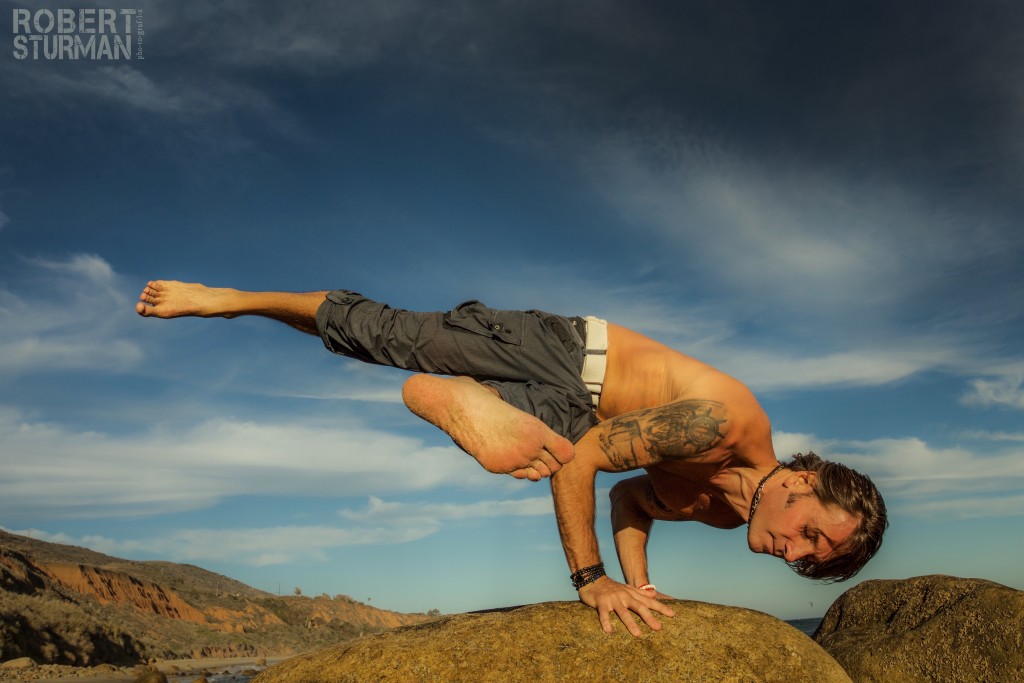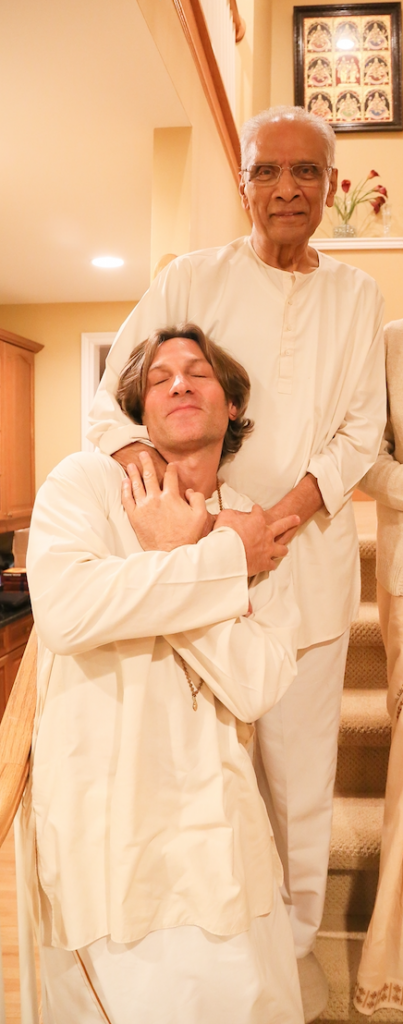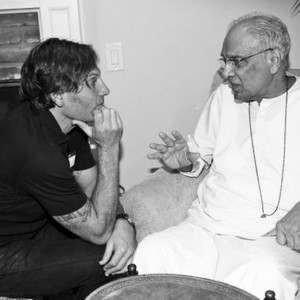“There is nothing more powerful than a made-up mind”, Lewis Gordon Pugh. No Sh*t!
I have seen folks bring themselves back from the dead. I have witnessed healing that was thought impossible. I have seen a 180° turn-around physically, emotionally and intellectually in some people. I, myself, have experienced many such turn-arounds. I have gone from being held up at gunpoint in a drug deal gone bad to helping others get sober. I have vowed never to speak to certain people, only to have had quality conversations with them. This all happened because the mind was made-up.
In my profession, I see people daily believing they can’t do something, while it is painfully obvious that they can. Something as simple as stepping their front foot further forward in a warrior pose, or something more difficult, like stepping out of a harmful relationship, have held people hostage. The f**king mind! It can turn a heaven into a hell or a hell into a heaven. All the while it’s doing this, it’s controlling you and not the other way around.
So if a “mind made-up” is the most powerful thing on earth, wouldn’t you want to have it under your control?
First, let’s look at how it’s NOT done. You cannot control the mind by controlling your breath! This is Yoga 101 horse sh*t. The laws of science state “the subtle controls the gross”. For instance, you look at a puppet show and see the puppets. A child sees the puppets and thinks they are all powerful. However, an adult sees the strings and then looks to see what is behind them. He finds there is a human pulling the strings. The puppet is the gross, meaning it’s what is visible to the naked eye. The subtle aspect (less visible and often unseen) is that there are strings moving the puppet and even more subtle, the puppeteer pulling the strings. Hence, the subtle controls the gross.
Your breath is the gross.You can see it and feel it. However, the mind is subtle. In order to actually make a physical choice, “let me breath easy, steady”, your mind has to send the command to the body. Therefore, your body cannot act on its own. To make it clearer, you can absolutely take deep Pranayamic breaths and be insane. The mind is never still. However, it’s impossible to have a clear, steady mind and be a mess. The same is true with asana. You can stand on your head. But still act like your head is in your ass.

Still not convinced? Then let’s use alcohol as an example. Most people use alcohol to relax. No doubt a glass of wine or two will do the trick. You were stressed out and now, after drinking the wine, you are relaxed. The question is, are you really relaxed? No! What you have experienced is a temporary physical conditioned response to the alcohol, which makes you “feel” relaxed. However, once the alcohol wears off, the stress returns.
Be honest, isn’t this what you feel with your physical yoga practice? A breath and asana class can make you feel great. But then those not-so-great feelings return. The physical cannot change the mental. The asana and the pranayama are both physical. So if breath work, asana and meditation (a whole other discussion) do not control the mind, what does?
Sadly, when asked this question at dozens of yoga conferences, festivals and studios, not a single yoga teacher can answer it. Can you?

Ironically it’s not taught in a 200, 300, 400 or 500 hour yoga teacher training program. It’s not taught anywhere. Simply because the equipment in question is unknown to us and, as a result, very weak.
We are not asking the the right questions. No one is thinking. We take in all the information we are learning and we believe it. Why? Because we either agree with what is being said, or we like the person speaking to us. We reject it, because we do not like what is being shared, or we do not like the person who is sharing it. With all the powerful personalities in the yoga world and with our genuine desperation to learn, it makes for a very dangerous combination; equating incorrect information shared as being the truth.
So what am I talking about? The human Intellect in Sanskrit is called the Buddhi, which means “that which questions”. The gross intellect can question anything in the world. But it’s the subtle intellect that asks, “what’s beyond the world?”. It recognizes our likes, our dislikes, our emotions, and makes choices far beyond the whims and fancies of those emotions. It stands above our ego, which is the producer of inferiority and superiority complexes, fears and anxiety. I have a saying “no more ego, no more problems”. We all have this intellect. But like any other muscle, unless you work it, it won’t work for you.
Long before Hatha yoga came on the scene, the three yogas that are the foundation for the emotional, intellectual and personality transformations, were created. One of them being Gnana Yoga, which builds the intellect. This is the yoga of knowledge. It is not what you are studying necessarily that builds the intellect.
There are many well-read people. However, when you read without using your intellect, you cannot be objective, reflective or introspective. Your mind will look for what it wants to hear. Or reject what it does not like. When we learn from that channel, we misunderstand what yoga is, what it can do for us, and how to practice it (re-read this last sentence).

A book, not a blog, is needed to help undo all the misconceptions and properly reset the mission of a yogi. Actually there are two books: The Fall of The Human Intellect and Vedanta Treatise, both written by A. Parthasarathy. These books were written solely for the development of the intellect. In them we are given explicit “how to” instructions…
1. Wake up 60 minutes before you normally do in the a.m. (unless you already wake up at 4 a.m.). The ideal time to study is somewhere between 4 a.m. to 6 a.m. Or just get started by waking up earlier than normal! If not 60 minutes, then 30 minutes, or even 10 minutes earlier will work. Do whatever your mind will allow. Once you build the intellect, your mind will no longer own you! Read slowly and only a small amount at a time. Think about the information you read. Try to extract what the author is saying. Do not try to make it your own (yet). Let it sit, assimilate and digest.
2. Formulate questions and take nothing for granted. Question everything, especially what you are reading, including this blog. However, you need a guide to answer your questions.
Because, by just asking yourself, you are likely to be talking to the mind, which only will produce answers it wants to hear. How will you know? You won’t. You need a guide and question the guide too.
3. Introspection: This is an amazing exercise. Take five minutes before going to bed and retrace your steps of the day. Do not analyze, just observe. The genius behind this is, that once you make a habit of doing this at night, you will begin to “see” what you are doing in the day. Ever wonder why it is said “hindsight is 20/20”? This is because, after we take action, our intellect then appears. Where was it at the time of action? Our mind held it hostage. As you build your intellect, you will have it available at all times. You will never need hindsight, because you will have real insight.
No more inner conflicts or second guessing. No more “knowing and not doing”. No more “missing what’s right in front of us”. You will be on point, steady, objective, effective, efficient and free with a strong intellect. This means YOU make up your mind. Your mind does not make you up.
Since “nothing is more powerful than a made-up mind”, you will be powerful. Doesn’t this sound amazing? It is amazing! Now you have the formula to make it so. So do it!
Peace,
EP
Posted – Telluride Yoga Festival


